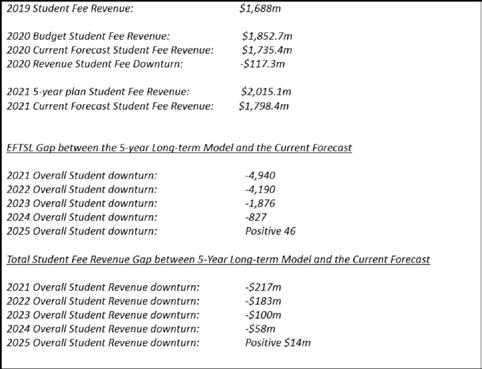SRC and Honi Soit Elections
Note: Iris Yao is not involved with the coverage of this year’s SRC, NUS or Honi Soit elections.
The esteemed current editors of Honi Soit Swapnik Sanagavarapu has been provisionally elected as the President of the SRC for 2021, as the sole candidate in an uncontested election. He scored 64% in our quiz. Here’s our profile of him, below:
Swapnik Sanagavarapu (2021 SRC President) Swapnik Sanagavarapu’s election to President of the SRC is historic in at least three respects: it is the first time a SRC President has been elected without competition in at least 50 years, it is the first time Grassroots will have held the SRC Presidency for two years in a row, and Sanagavarapu will be coming to the office in the midst of a global pandemic. Our interview with Sanagavarapu, much like his rise to presidency, was uneventful. With the vanishing of any opposition, so too goes the need for Honi Soit editors to create contrived downsides to compare him to a much worse candidate. That means we can say this: Swapnik Sanagavarapu will probably be a good president. Students content with Liam Donohoe’s presidency will likely be pleased by Sanagavarapu’s. Indeed, Sanagavarapu is something of Donohoe’s political protege, and was initially recruited into Grassroots by Donohoe after meeting at a debating mixer. “It’s no secret that I’m very much like Doon,” he tells us in his interview. Both are charismatic former debaters, both have considerable experience in Grassroots election campaigns, both enjoy (perhaps too much) sparring with their political opponents, neither had a paid Office Bearer position within the SRC prior to election, and both (I guess we should mention) are dudes. Sanagavarapu’s view of Donohoe’s
presidency is unsurprisingly favorable. Even what he deemed to be the current president’s biggest weakness — “trying to do too much” — sounded like he was doing a job interview on behalf of Donohoe. When asked how he would differ from Donohoe, Sanagavarapu’s answer was “not much”. He plans to delegate more work to other Office Bearers — a task that may be difficult if the lack of work from this year’s General Secretaries and Vice Presidents is anything to go by — and lobby for permanent funding for Donohoe’s popular initiatives, such as the mutual aid network. Sanagavarapu has already begun to work closely with Donohoe, sitting in on the Academic Board, acting as the President in July when Donohoe was on leave, and assisting with the SRC’s submission to the Senate’s inquiry into the Higher Education Bill. He has been a councillor for the last two years, a member of the General Executive this year and served as Global Solidarity Officer (after getting rolled from Ethnocultural Officer) and co-convener of the Autonomous Collective Against Racism (ACAR) last year, effectively rehabilitating the group. However at the time, a female co-convener complained that Sanagavarapu and other co-office bearers had done less than their fair share in the role. Sanagavarapu said he regrets letting some of his tasks
fall onto others, and cited “institutional constraints” — working multiple jobs, full-time study and a 90 minute commute — that would not exist with the President’s almost $40,000 salary. Though less experienced than Grassroots candidates of recent years, all of whom have had paid OB roles prior to running, Sanagavarapu’s experience in the organisation, and the institutional experience of Grassroots would wellequip him for the role. His quiz results in this area were largely correct, though he crucially missed that the SRC is an unincorporated entity which impacts his legal libailities as president. Swapnik was initially hesitant to put his hand up for the role while Grassroots was looking for a candidate earlier this year. He attributes that to the fact that his degree progression is “fucked”. It is for the same reason that he says he might have to, for reasons he could not tell us, take one or two units next year. This would be a break from previous Grassroots presidents, this is a far cry from Jacky He’s absentee presidency through which he studied full-time. Previous NLS president Isabella Brook, took two units per semester and was regarded as generally capable in the role. When asked whether this conflicted with Grassroots’ criticisms of Josie Jacovak last year, he said that his criticism was not that she had planned to do any units at all (which might have been manageable) but that she
planned to study full-time. Most of Sanagavarapu’s policies centre on campaigning against cuts and racism, and for environmental action and greater support for international students. Some of Sanagavarapu’s presidential ambitions seem out of place in the context of the pandemic, though that may well be attributable to the fact that it remains uncertain exactly what effect this will have on the SRC and campus life next year. When asked whether his proposed SRC stall would be feasible if most students remain off campus, for example, Sangavarapu admitted that may be true but detailed an online communications strategy. There are several omissions from his policy statement, notably there is no mention of anti-sexual assault campaigns. In his interview, Sanagavarapu said this was not because they were “not important” but because they had dropped off this year. Swapnik’s knowledge of the broader University sector context, and the University itself was left wanting. His quiz scores were low in these areas. Importantly Sanagavarapu will be coming to office in a context of massive university funding and staff cuts. That context will ask more of him than most of his predecessors. It remains to be seen whether he will be able to rise to the occasion.
The esteemed current editors of Honi Soit Bloom for Honi have been provisionally elected as the editors for Honi Soit for 2021, as the sole ticket in an uncontested election. They scored 63% in our quiz. Here’s our profile of them, below:
Bloom for Honi (2021 Honi Soit editors) Birthed through a tumultuous merger of two tickets, Bloom was automatically elected. The ticket comprises Shania O’Brien, Vivienne Guo, Claire Ollivain, Jeffrey Khoo, Deaundre Espejo, Marlow Hurst, Juliette Marchant, Max Shanahan, Alice Trenoweth-Cresswell and Will Solomon. All ten incoming editors have reported regularly for Honi this year with Claire and Shania also contributing art to the paper. Bloom also has considerable experience editing autonomous editions of Honi, in addition to campus journals, including the Arts Society’s 1978 and Law Society’s Dissent. The team have somewhat less formal experience within the SRC than recent Honi editorial teams, with only Vivienne (current Councillor and co-Women’s Officer) having held positions within the student union. This is something that Bloom framed to us as an asset, in being able to “approach things more objectively.” Yet, this inexposure to student representative bodies is certainly something that Bloom will need to get a grasp on fairly quickly, as one of the first things they’ll be tasked with as editors is covering the National Union of Students’ National Conference (NatCon). When pressed on whether they’re sufficiently prepared for coverage they answered with an unsatisfactory: “We haven’t really thought about it, to be honest (...) I think it’ll be like any other event.” Unfortunately, anyone who knows anything about NatCon knows that it’s
not like any other event. Bloom received a sound score of 63% (almost a credit :P) in their quiz, demonstrating proficiency with regards to basics, including recent Honi history and who’s who on campus. Despite this, they struggled on questions which either didn’t feature in previous presidential / Honi quizzes or required decent general knowledge. Of particular concern were their incorrect answers around higher education and staff unionism, especially given the spotlight on such issues at the moment. Bloom didn’t know the National President of the NTEU, named Dan Tehan as the NSW State Education Minister and answered “2025” as the year in which the Sydney University enterprise agreement expires. Given enterprise agreements last no longer than four years, and USyd’s expires next year with the potential for strike action, the ticket must plug the gaps before taking the reigns come December 1. Bloom has framed their vision for next year’s Honi in direct contrast to our 2020 output. Critiquing the current editorial approach as being “intensely news-centric”, despite Honi being a student newspaper (after all), Bloom wants to place extra emphasis next year on cultural writing, visual art and polished print design. Indeed, when looking at the Honi articles published by the team over the past few years, culture or creative pieces seem to be a strong suit of the ticket, suggesting they certainly have some potential in
bringing their colourful vision to life. When asked about their political stances and direction for the paper, however, Bloom was almost incoherent. Despite labelling themselves as a “progressive” ticket in their policy statement, Bloom were unwilling to specifically “define [their] political leanings because there’s 10 of [them]”, eventually settling on “progressiveness” as their “broad vibe”. When asked specifically about which recent Honi year they felt most politically aligned with, Bloom responded equally vaguely: “I don’t really know. I’d say that Honi is generally fairly left.” Another important part of Bloom’s vision is the broadening of Honi’s visibility and impact on campus, pitching increased engagement with USU Clubs & Societies, social events and lecture bashes as ways of expanding its demographic. However, such promises are perhaps too optimistic — the chances of the current pandemic restrictions being lifted by the start of next year are looking slim at best. Bloom’s policy statement largely reads as a recycled list of fan favourites including greater “digital-focused” content, more live reporting and holding management to account. Where Bloom’s policies aren’t lifted directly from previous tickets, they’re unclear at best. Claiming to make the reporter-editor pitching process more “discursive”, it was evident in our interview that Bloom had not yet formed any concrete strategies to do so. Other
policies, such as sports coverage and alumni content, were also muddled: Bloom didn’t seem sure whether they wanted to cover sport generally, or provide sporting reports for on-campus rugby games. Further, Bloom’s promise to “conduct extensive investigations” can hardly be backed-up by their actual investigative track record. No member of Bloom has ever been responsible for an investigative article. Moreover, having jointly pitched an investigation, several Bloom editors were unable to complete the piece and retracted its writing after it had already been approved and paginated for an upcoming edition. This followed another mishap the previous week, in which an article was submitted two days late and deviated from the original pitch. With both incidents occurring after Bloom’s automatic election, we’re left wondering whether the uncontested election has gone to their heads. More concerningly, earlier this year Bloom member Vivienne Guo co-wrote an article for Women’s Honi which contained significant textual similarities to an article published in Growing Strong, of which she was editor-inchief. In response to an allegation of plagiarism, Guo told Honi that she had a conversation with the other author and the two had resolved things, chalking up the resemblance to “a rare but unfortunate situation of having a phrase/idea stuck in your head and not knowing where it came from. (...)”








